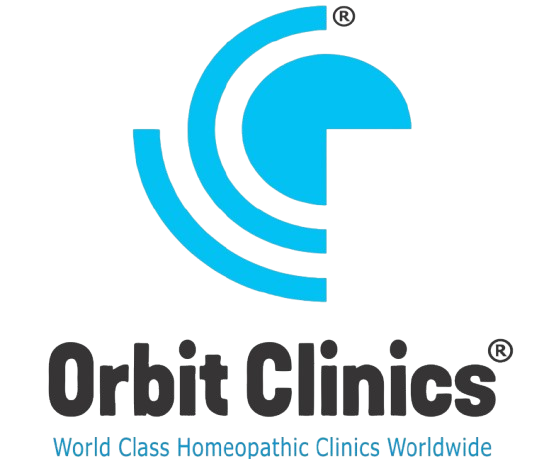A Holistic Approach to an Unconventional Eating Disorder

Written by
Dr. Deepak Sharma
BHMS, MD, Ph.D. (Scholar)
Homeopathic Physician and Educator
Founder – Orbit Clinics
Abstract:
Pica, a complex and multifaceted eating disorder characterized by the persistent consumption of non-food substances, presents considerable risks to affected individuals. Conventional treatments often struggle to address the root causes of pica effectively. This article explores the potential benefits of homeopathy, a holistic and alternative medicine system, in treating pica. Homeopathy offers personalized treatment, minimal side effects, a comprehensive approach to well-being, non-invasive remedies, and cost-effectiveness. By addressing both the physical and psychological aspects of pica, homeopathy provides a gentle, holistic approach that can identify and treat underlying nutritional deficiencies and emotional or mental factors contributing to the disorder. A range of common homeopathic remedies used for treating pica are discussed, offering a promising avenue for individuals seeking natural and holistic treatments for this unconventional eating disorder.
Introduction:
Pica, a lesser-known eating disorder, is characterized by the persistent consumption of non-food substances, such as paper, clay, and ice. It can affect individuals of all ages, but it is most commonly observed in children, pregnant women, and people with developmental disabilities. Although the exact cause of pica remains unclear, it is believed that nutritional deficiencies, stress, and cultural factors may contribute to its development.
Homeopathy, an alternative medicine system founded by German physician Samuel Hahnemann in the late 18th century, focuses on using highly diluted substances to stimulate the body’s self-healing abilities. Despite being a controversial practice in the medical community, homeopathy has found a niche among people seeking natural and holistic treatments. In this article, we will explore the potential benefits of homeopathy in treating pica, alongside its positive aspects.
Understanding Pica:
Pica’s etiology is complex and multifaceted, often making it difficult for conventional medicine to address its root causes effectively. The disorder is usually diagnosed when a person consumes non-food items for at least one month, with no apparent medical or nutritional reason for doing so. The substances ingested can range from soil and paint chips to hair and laundry detergent.
The risks associated with pica are considerable, as the consumption of non-food items can lead to gastrointestinal problems, infections, poisoning, and even fatalities. Treatment often involves identifying and addressing the underlying cause, which could be physical or psychological in nature. Nutritional counseling, behavior modification, and medication may be employed to manage the disorder.
Homeopathy and Pica:
Homeopathy operates on the principle of “like cures like,” meaning that a substance causing symptoms in a healthy person may help alleviate those same symptoms in a person with a disorder. Homeopathic remedies are derived from natural substances, such as plants, minerals, and animal products. These substances are then diluted and potentized to create a remedy that has minimal side effects and is tailored to the individual’s unique symptoms and constitution.
In the case of pica, homeopathy offers a gentle and holistic approach to treatment, addressing both the physical and psychological aspects of the disorder. It can help identify and treat the underlying nutritional deficiencies, while also addressing any emotional or mental factors that may be contributing to the development of pica.
Some common homeopathic remedies used for treating pica include:
- Alumina: Recommended for individuals who crave chalk, clay, or other earthy substances, and who may suffer from constipation or digestive issues.
- Calcarea Carbonica: Useful for those who crave chalk, coal, or ice and exhibit signs of calcium deficiency or malnutrition.
- Silicea: Beneficial for individuals who crave sand, glass, or hair, and may have weak connective tissues, brittle nails, or skin issues.
- Arsenicum Album: Often used for those who crave substances like paint, chalk, or ashes, and may experience digestive problems, restlessness, and anxiety.
- Natrum Muriaticum: Suitable for individuals who crave salt, ice, or salty foods and may suffer from dry skin, fatigue, or emotional issues such as depression or irritability.
- Phosphorus: Recommended for those who crave spicy foods, carbonated beverages, or ice and may have a tendency toward respiratory issues, fatigue, or anxiety.
- Nux Vomica: Beneficial for individuals who crave stimulants like coffee, alcohol, or tobacco and may experience digestive issues, irritability, or sleep disturbances.
- Pulsatilla: Useful for those who crave sweets, fatty foods, or ice cream and may suffer from mood swings, hormonal imbalances, or digestive problems.
- Lycopodium: Often used for individuals who crave warm food and drinks, and may have issues related to digestion, bloating, or liver function.
- Sulphur: Suitable for people who crave sweets, spicy foods, or alcohol and may experience skin irritations, itchiness, or a tendency to feel hot or sweaty.
Positive Aspects of Homeopathy:
Homeopathy offers several advantages that have contributed to its growing popularity as an alternative healthcare option:
- Personalized Treatment: Homeopathy takes into account the unique symptoms and constitution of each individual, ensuring that the treatment plan is tailored specifically to their needs.
- Minimal Side Effects: Homeopathic remedies are highly diluted and typically cause few, if any, adverse reactions.
- Holistic Approach: Homeopathy addresses not only the physical symptoms of a disorder but also the emotional and mental components, promoting overall well-being and balance.
- Non-Invasive: Homeopathic remedies can be taken alongside conventional treatments, allowing for a complementary approach to healthcare.
- Cost-Effective: Homeopathic remedies are relatively inexpensive compared to conventional medications, making them accessible to a wider range of individuals.



